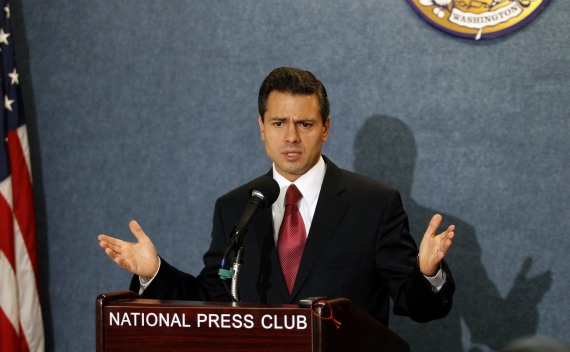Enrique Peña Nieto’s Campaign Book
More on:

It seems the campaign book so popular in the United States has headed south of the border. After a recent tour through Washington, DC, and New York, former governor and likely PRI presidential candidate Enrique Peña Nieto just released Mexico, the Great Hope. An efficient state for democracy with results.
Arguing that the successive PAN administrations have left the country worse for the wear, Peña Nieto lays out his vision for a government based on guaranteeing citizens’ basic rights (such as security), getting the economy growing at its full potential, and reaffirming Mexico’s leadership as an emerging power on the world stage. He calls for a number of economic reforms, including opening Petróleos Mexicanos (PEMEX) to private investment (still maintaining state ownership), as well as widening the tax base and simplifying the tax code. On security, he favors a more comprehensive strategy geared first and foremost to reducing the violence.
Most of his positions are quite sensible. Mexico needs to (and is already starting to) focus on lowering the escalating levels of violence, as opposed to concentrating on taking down drug kingpins. Economically, opening up PEMEX would increase foreign investment and improve Mexico’s overall competitiveness, boosting jobs and growth in the process. Reforming the tax code would also go a long way to enhancing and diversifying government revenues and hopefully make it easier to start up businesses. But these two reforms are also politically difficult -- having been on the legislative table for years now, and repeatedly stymied by Peña Nieto’s own party. If he wins, perhaps the former governor will be Mexico’s equivalent of a “Nixon in China” – able to change the dynamics precisely because of his party’s ties to PEMEX’s union – but that remains to be seen.
Much will also depend on the United States. For Mexico to reach its economic potential, the United States will have to grow as well, as the economies today are indelibly intertwined. A U.S. immigration reform – if it happens -- also could change things for Mexico. For all its big vision, the book makes clear that there is much that needs to happen during the next presidential term in Mexico to fulfill this “great hope.”
More on:
 Online Store
Online Store